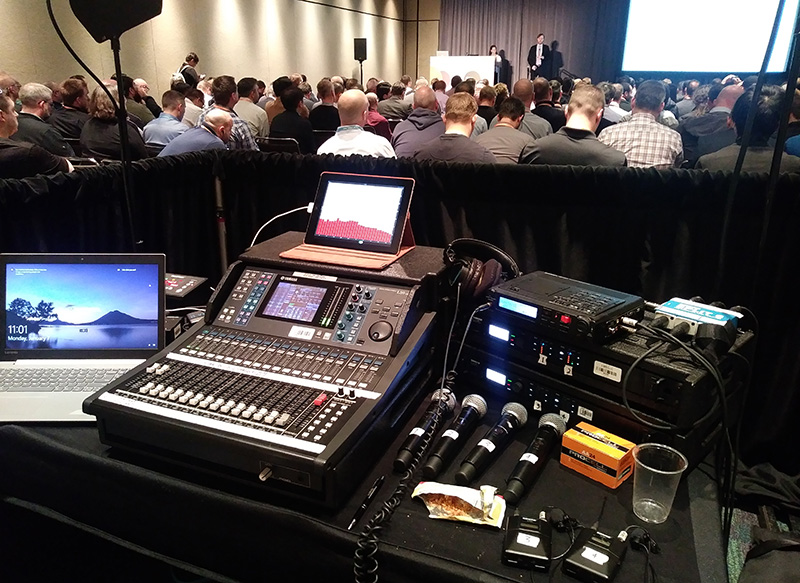Most of us will never mix front of house or monitors for a headliner. Instead we’ll usually find ourselves applying our finely-honed skills for breakout rooms of various sizes at corporate events or something similar, and even those of us who have been around for a while might find it useful to review the basics.
First, a bit about myself, because it’s always good to know a bit about the person who’s trying to give you advice. I got a belly full of touring in the early 1980s when I was a keyboard player with a 25-piece show band that toured worldwide. Anyone who wants it can have it.
I find that one advantage of living in the mouse house (Orlando) is that the work comes to me. I like being in my own bed at night next to my own wife of 34 years and going fishing once a week on a weekday in the creek that flows through a nearby forest. I call it my weekly therapy. I’ve been doing corporate events large and small for more than 25 years.
Attitude comes first, before anything of a technical nature, followed closely by etiquette. A good attitude and simple manners will go a long way with the client and with your fellow workers. After that, here’s a list – in no particular order – of things that I find keep me in demand as a freelancer:
• Never speak directly to the client unless the client first speaks to you. Your direction comes from the crew lead, who answers to the technical director, who answers to the producer. Always follow the chain of command so that everyone is in the loop.
• Never assume that you know more than another A1, A2, or audio technician, and if it becomes evident that you do, never act like it. Mutual respect goes a long way toward a positive work environment and a happy client.

• Never, ever touch another engineer’s mixing board unless you’re asked to do so directly. Even if the crew lead tells you that he wants all mixing boards in the breakout rooms to be set a certain way, you’re only to relay the message unless instructed otherwise. Making adjustments or changes on someone else’s desk is a fast and sure way to make enemies.
• Always conduct yourself as if the client is standing next to you. You’ll be surprised at how often it will be true.
• A good sense of humor is always welcome, but make no mistake, we’re all about business and getting the job done. If a client sees us standing around making jokes, he or she will wonder what it’s costing him/her, and that’s something you don’t want the client to be doing. (By the way, have you heard about the one about the audio engineer who walks out of a bar? Hey, it could happen!)















